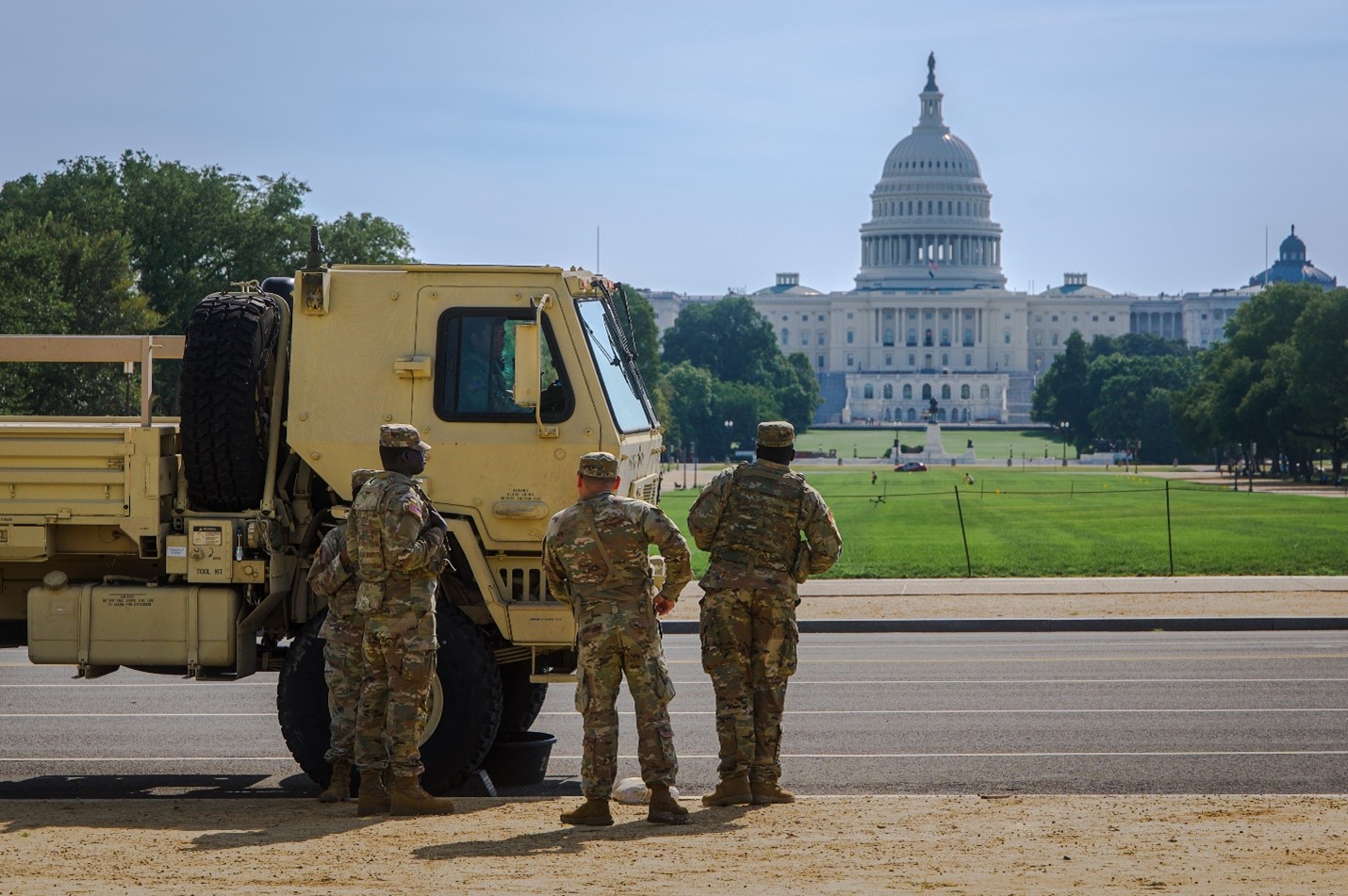|
August 16, 2025 MPD leaders should remain in charge of their police department
PERF members, On August 11, President Trump issued an executive order declaring a “crime emergency” in the District of Columbia and taking federal control of the Metropolitan Police Department (MPD). That order was accompanied by the news that 800 members of the National Guard would begin deploying across Washington, D.C., to assist local and federal authorities with countering crime and homelessness. Under current laws, the president is able to take over the police department for up to 30 days. Extending that time frame would require approval from Congress.
Members of the National Guard positioned on the National Mall in Washington, D.C., facing the U.S. Capitol building. Earlier in the week, local and federal law enforcement officials met to discuss ways they could collaborate to work on shared goals. But the relationship deteriorated on Thursday evening, when Attorney General Pam Bondi issued an order appointing Terry Cole, the new head of the Drug Enforcement Administration, as Washington’s “emergency police commissioner.” According to Attorney General Bondi’s order, Commissioner Cole “shall assume all of the powers and duties vesting in the District of Columbia Chief of Police” and “shall have the authority to issue any general orders, executive orders, or other written directives that apply to Members of the MPD.” The order states that MPD’s leadership team “must receive approval from Commissioner Cole before issuing any further directives to the MPD.” Yesterday D.C.’s attorney general sued to block the move, and following afternoon hearings before a federal judge, the U.S. Department of Justice agreed to rewrite the order to leave Chief Pamela Smith in charge of MPD. D.C.’s relationship with the federal government is unique. Until Congress passed the Home Rule Act in 1973, the city was run by federally-appointed commissioners. The Home Rule Act established elections for mayor and city council, giving the District’s citizens a say in their local government, though Congress can still override local laws. From 1995 to 1998, the federal government took back some of that control in response to a budgetary crisis by establishing a Financial Control Board to oversee all financial operations of District agencies. The federal government is still deeply involved in administration of the District, particularly its judicial system. In addition to federal cases, the U.S. Attorney for the District of Columbia handles most local felonies and misdemeanor drug cases. Local cases are tried in the D.C. Superior Court, whose judges are appointed by the president and must be confirmed by the Senate. Federal agencies supervise adults on pretrial release and probation and parole. Local and federal law enforcement agencies must work together in all parts of the country, but they are particularly intertwined in the District. The FBI, ATF, and Secret Service are all headquartered in D.C., and the DEA’s headquarters is just across the river in Virginia. The U.S. Park Police have jurisdiction throughout D.C. As in most cities, local and federal agencies regularly work together on investigations and major events, such as the presidential inauguration and dignitary motorcades. When responding to crimes that would overwhelm any one agency, such as the 2021 attack on the U.S. Capitol, local and federal agencies have collaborated effectively. When PERF reviewed the 2002 Beltway sniper case, an FBI representative told me the White House initially wanted the FBI to take over the investigation when it started receiving national attention. But local and federal law enforcement officials pushed back, arguing that local police departments had extensive experience with homicide investigations and putting the FBI in charge might inadvertently demonstrate a lack of confidence in the local agencies. Thursday’s declaration putting a federal appointee in charge of all MPD powers and duties is a dramatic shift away from that previously collaborative relationship. Federal and local agencies have different strengths and weaknesses. Local agencies are responsive to their local communities in a way that federal agencies are not. They have long-established relationships with their communities. Their members wear nametags, and most have body-worn cameras. Many agencies provide specialized training on the history, culture, and expectations of their communities. They have local oversight through mayors, city managers, city councils, and other government bodies. They depend on their connections with community members for help in solving and preventing crime. For all these reasons, local agencies are better equipped than the federal government to handle local policing. In a court filing yesterday, MPD Chief Smith wrote, “If effectuated, the Bondi Order would upend the command structure of MPD, endangering the safety of the public and law enforcement officers alike. . . . Imposing a new command structure ‘effective immediately’ will wreak operational havoc within MPD and create tremendous risk for the public.” Despite yesterday’s changes to the Attorney General’s order, there will certainly be additional litigation in the coming weeks. I hope it leads to Chief Smith and her leadership team remaining in charge of their police department. Best, Chuck |

